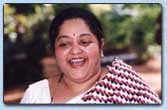| Serving
over 22 millions NRIs worldwide |
|
|||||||||||||||||||||||||||||||||||
|
||
| N
UPDATED: (5C)
NRIs upset of Media report for pin-pointing Swadhyaya Parivar in Pankaj Trivedi murder case
California. 23rd June 2006 Swadhyaya is a spiritual movement founded by Rev. Pandurang
Shastri Athavale, fondly known as "Dadaji", which means
elder brother. Born in 1920, Dadaji took a resolve to uplift human
life through the means of self-introspection ('Swadhyaya'). He looked
deeply into the problems that plague humanity. He noted that these
problems were the result of alienation of man from his creator.
His solution to these inherent issues, therefore, included the concept
that we are all sons and daughters of the same god. Dadaji and Didiji have always preached and practiced love and
unity of all. They have never sought any recognition, prestige
or awards. Swadhyaya work has been studied by many research scholars,
economists, politicians, and Dadaji single-handedly started his work by visiting the entire
Indian subcontinent, along with many other areas of the world. It
has transformed countless lives in tens of thousands of villages
in India. Dadaji worked incessantly through his demise, which occurred
in late 2003. During all these years of work, as Dadaji went from
"heart-to-heart" and "hut-to-hut" Unfortunately, when Dadaji delegated Didiji to take on the responsibility
of the massive Swadhyaya work, there were a few members of
the Swadhyaya family who did not accept this decision. Because
of their longstanding relationship with Dadaji, they felt a sense
of entitlement to this responsibility. Begrudged by the appointment
of Didiji to take the responsibility, they and a few of their cohorts
began a concerted effort to destroy Didiji's image and tarnish Dadaji's
life. The main purpose of these people, the "anti-Swadhyayees",
was to usurp the control of the work. Once it was clear that this
purpose would not be served, persons like Mr. Pankaj Trivedi set
out to destroy the very work they were once a part of.Mr. Trivedi
and a few others chose to engage in antagonistic activity and false
accusations against Didiji and the Swadhyaya parivaar. They alleged
that the Swadhyaya parivaar and Didiji asked for funds during the
2001 earthquake in Gujarat (a state in India). This is an entirely
false statement. To begin with, Dadaji and Didiji have never solicited
funds from anyone, directly or indirectly. They have also instilled
this mentality in the entire Parivaar. In the aftermath of the earthquake
in 2001, a total of 5058 houses were built through the efforts of
76 non-government organizations (NGOs). Of these, 4534 houses were
built by the Swadhyaya Parivaar alone, according to a report by
the United Nations Development Further efforts to damage Swadhyaya work led a few anti-Swadhyayees
to allege to the home ministry of India's central government in
2002 that "Swadhyaya is a terrorist activity". In response,
the Indian government's intelligence bureau conducted a thorough
investigation in Swadhyayee villages throughout India. This investigation
revealed absolutely no basis Another facet of anti-Swadhyaya propaganda has included the repeated
filing of police cases against many devoted Swadhayees over the
last five years. Police investigations have found each and every
one of these complaints to The media has reported that Mr. Trivedi was a prominent Swadhyayee, that he donated 1.5 crore (15 million) rupees, and that Pujya Dadaji used to visit him at hishome often. All these reports are completely untrue. At the current time, it is the media's responsibility to report only the truth, instead of reporting and sensationalizing completely baseless allegations in an attempt to tarnish the image of Dadaji, Didiji, and Swadhyaya work. It is important to consider who benefits by misleading the police and by harassing the Swadhyaya Parivaar. In the end, it is society and devoted Swadhyayees who are hurt when attempts are made to tarnish the image of holy work such as Swadhyaya.
|
||
|

